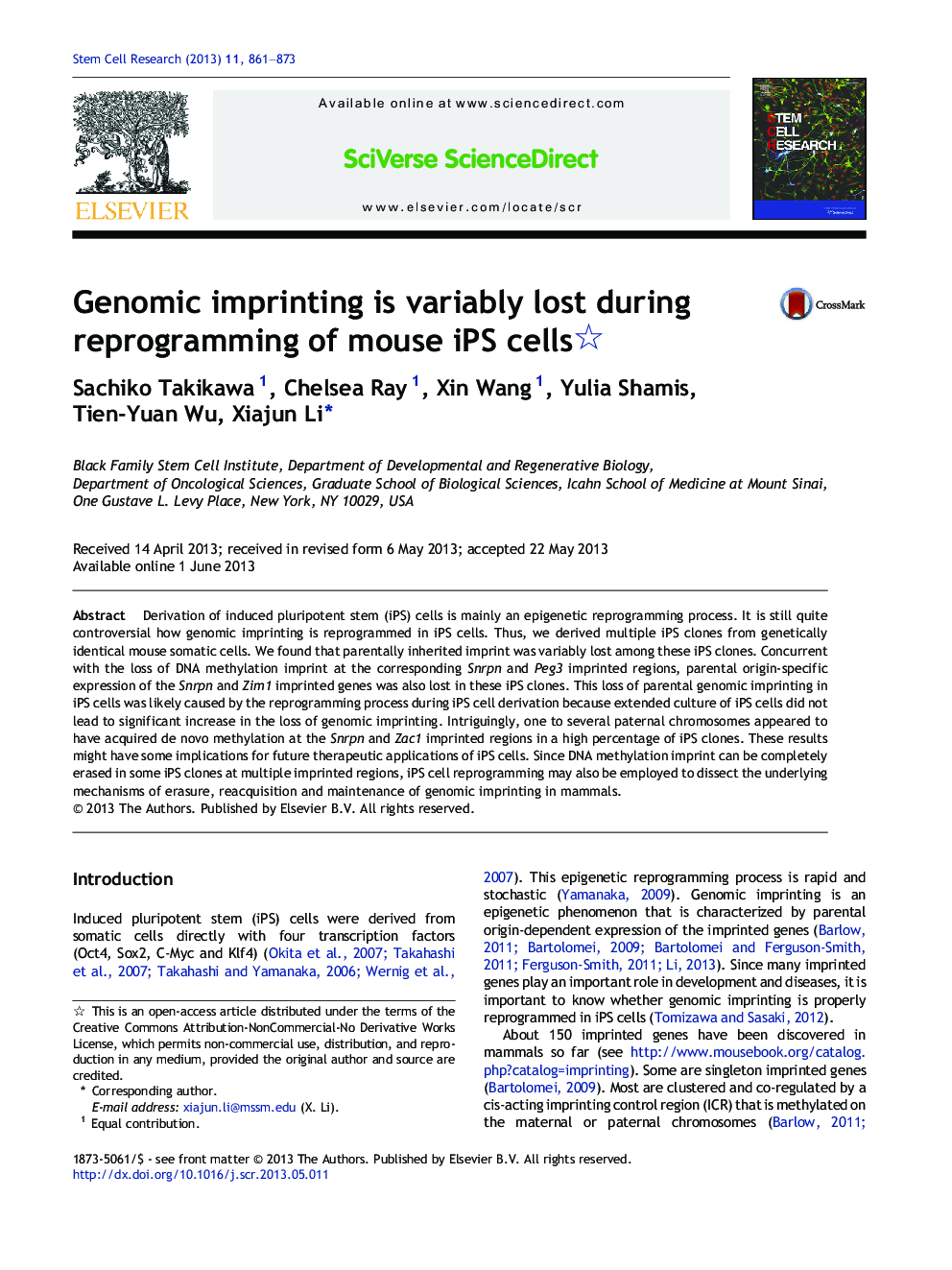| Article ID | Journal | Published Year | Pages | File Type |
|---|---|---|---|---|
| 10891416 | Stem Cell Research | 2013 | 13 Pages |
Abstract
Derivation of induced pluripotent stem (iPS) cells is mainly an epigenetic reprogramming process. It is still quite controversial how genomic imprinting is reprogrammed in iPS cells. Thus, we derived multiple iPS clones from genetically identical mouse somatic cells. We found that parentally inherited imprint was variably lost among these iPS clones. Concurrent with the loss of DNA methylation imprint at the corresponding Snrpn and Peg3 imprinted regions, parental origin-specific expression of the Snrpn and Zim1 imprinted genes was also lost in these iPS clones. This loss of parental genomic imprinting in iPS cells was likely caused by the reprogramming process during iPS cell derivation because extended culture of iPS cells did not lead to significant increase in the loss of genomic imprinting. Intriguingly, one to several paternal chromosomes appeared to have acquired de novo methylation at the Snrpn and Zac1 imprinted regions in a high percentage of iPS clones. These results might have some implications for future therapeutic applications of iPS cells. Since DNA methylation imprint can be completely erased in some iPS clones at multiple imprinted regions, iPS cell reprogramming may also be employed to dissect the underlying mechanisms of erasure, reacquisition and maintenance of genomic imprinting in mammals.
Related Topics
Life Sciences
Biochemistry, Genetics and Molecular Biology
Biotechnology
Authors
Sachiko Takikawa, Chelsea Ray, Xin Wang, Yulia Shamis, Tien-Yuan Wu, Xiajun Li,
